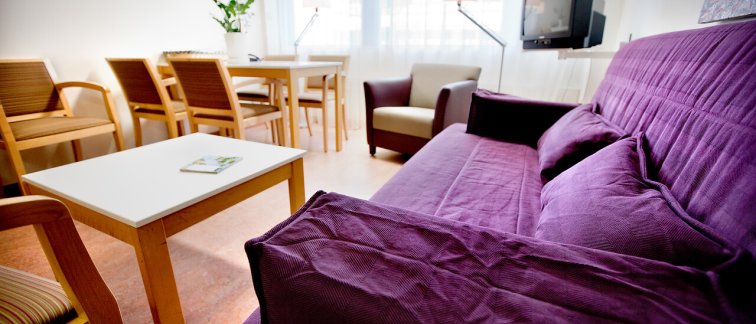Lung Disease Treatment RoomYour attending doctor has booked you in for a test under propofol sedation in the Lung Disease Treatment Room. Sedation involves reducing your level of consciousness through medication that will put you in a type of 'sleep'.Propofol is a medicine that can reduce your consciousness. It takes effect quickly and also wears off quickly: usually, it will only take you half an hour to recover fully.
Propofol will be administered continuously throughout the procedure, as it is an easy medicine to control. As a result, you will be 'asleep' for the entire procedure. Once the procedure is finished, we will stop administering propofol and you will recover. We will also apply pain relief to ensure you do not feel any pain during the test.
Your sedation will be performed by a sedation specialist: an anaestesia assistant who has received special training and who works under the supervision of an anaesthetist. This brochure provides more detail on what to expect of propofol sedation and what you need to be aware of beforehand.
Preparation
Prior to a procedure, under propofol sedation, you will be contacted by an anesthetist for a pre-operative screening.
You are allowed to eat and drink up to six hours prior to the test, but you must refrain from doing so after that point. You should continue to take your medication as usual, unless your doctor has told you otherwise.
Method
Prior to the start of the test, an intravenous needle will be inserted into a blood vessel in your arm or hand. Before putting you under sedation, we will connect you to a monitor to check your heartbeat, blood pressure and oxygen level. Oxygen will be administered through your nose. You will continue to breathe spontaneously and your reflexes, such as your swallowing and gag reflex, will remain unaffected. The sedative (propofol) will be administered through the intravenous needle. You will remain connected to the monitors throughout the test. Once the test has been completed, you will be wheeled to the recovery room on your stretcher. Your personal belongings will stay with you on your stretcher. You will remain in the recovery room until you have properly recovered and no longer feel nauseous, which will usually take around an hour. The intravenous needle will be removed following consultation with the sedation specialist and lung specialist.
Next, you will be given something to eat and drink, and you will be allowed to leave the
department.
Special circumstances
In some instances—mainly in the case of poor heart and/or lung function and in case of
a (heavy) cold—the lung specialist performing the test may choose not to administer a
sedative due to the risk of complications.
Resuscitation policy
The Lung Disease Treatment Room is only used for tests/treatment, and the chance of
complications is small. Nevertheless, we would like to point out that, in principle, all
patients will be resuscitated in the event of complications, unless the patient has explicitly
notified the doctor that he/she would prefer not to be resuscitated.
For inpatients, we will respect the resuscitation policy agreed as part of their hospital
treatment.
In conclusion
Make sure you have someone to accompany you to the hospital. Once you are discharged
from the hospital, you are not allowed to eat or travel independently for 24 hours.
Contact
If you have any concerns or questions after the test, feel free to contact the Lung Disease clinic:
During office hours you can call telephone number (+31) 020 - 444 05 22, ask for the on-call lung specialist
Outside of office hours you can call Amsterdam UMC central number (+31) 020 - 444 44 44, ask for the on-call lung specialist

